Partnership Building Accelerates in the Indo-Pacific Region
Dynamic changes are driving nations together to face burgeoning challenges throughout the Indo-Pacific region, and the U.S. Army is doing its part to build an infrastructure of supporting nations across the vast region. How the service is doing this within the context of the Indo-Pacific Command’s focus was the topic of the keynote breakfast on the second day of AFCEA’s TechNet Asia-Pacific 2018, held November 14-16 in Honolulu.
Maj. Gen. John P. Johnson, USA, deputy commanding general, U.S. Army Pacific, explained that the military plays a vital role in the U.S. “whole of government approach to a free and open Pacific,” and many factors are contributing to help the United States increase its portfolio of partners.
“The coercive and controlling actions of China actually are providing a great opportunity for the United States and its allies,” the general pointed out. China is expanding its physical and economic presence aggressively, which is driving other nations into the United States’ arms.
The coercive and controlling actions of China actually are providing a great opportunity for the United States and its allies.—Maj. Gen. John P. Johnson, USA, deputy commanding general, U.S. Army Pacific #AFCEATechnet
— Bob Ackerman (@rkackerman) November 14, 2018
He cited Vietnam as an example of a newly found partner. Years ago, when the two countries’ militaries first met, both were properly cautious. When a Vietnamese delegation visited U.S. Army Pacific headquarters, it saw a flag festooned with Vietnam campaign ribbons. Rather than apologize for that, the general pointed out the World War II campaign ribbons and noted that, “Historically, many of our worst enemies have become our best friends.” He added that in five short years, Vietnam went from “a nation relationship to a partnership.”
Historically, many of our worst enemies have become our best friends.—Maj. Gen. John P. Johnson, USA, deputy commanding general, U.S. Army Pacific #AFCEATechnet
— Bob Ackerman (@rkackerman) November 14, 2018
Exercises with others are building partnerships, which also enhances interoperability. “We are seeing great progress in our ability to communicate with one another,” the general allowed. “Interoperability is the new coin of the realm.”
When asked about the postponement of U.S.-Korea exercises, Gen. Johnson offered a varied view. “The pause in Korean exercises … it is not without risk, but we’re not standing on our hands in the meantime,” he declared.
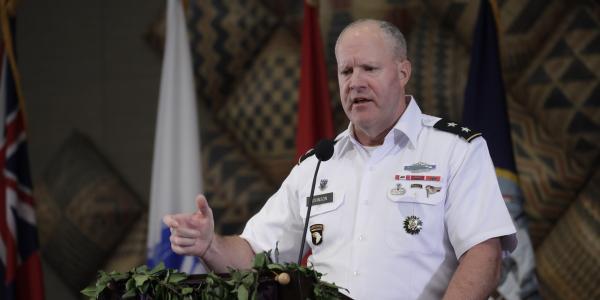
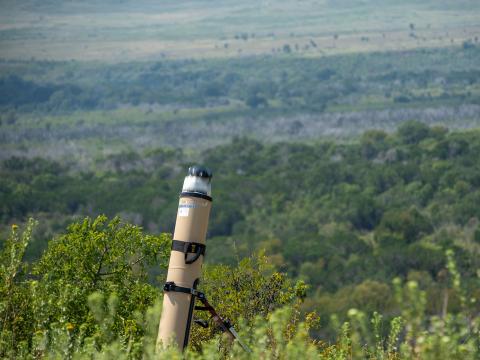
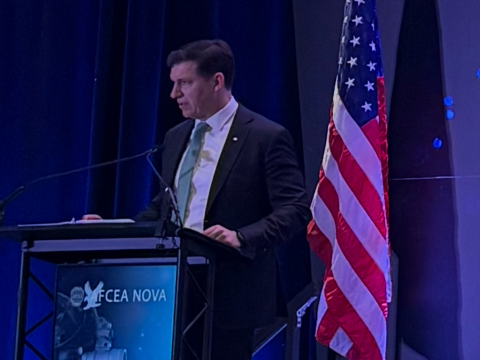
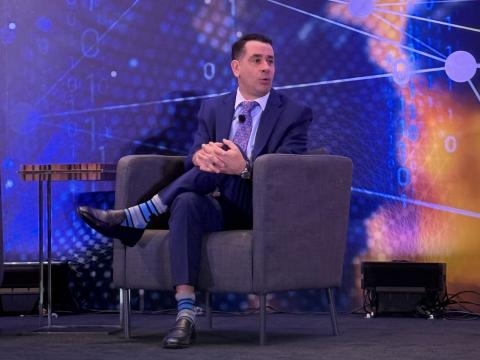
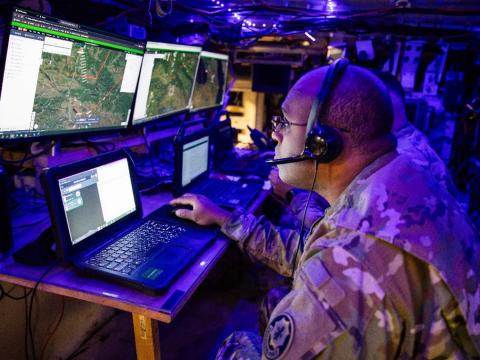
Comments